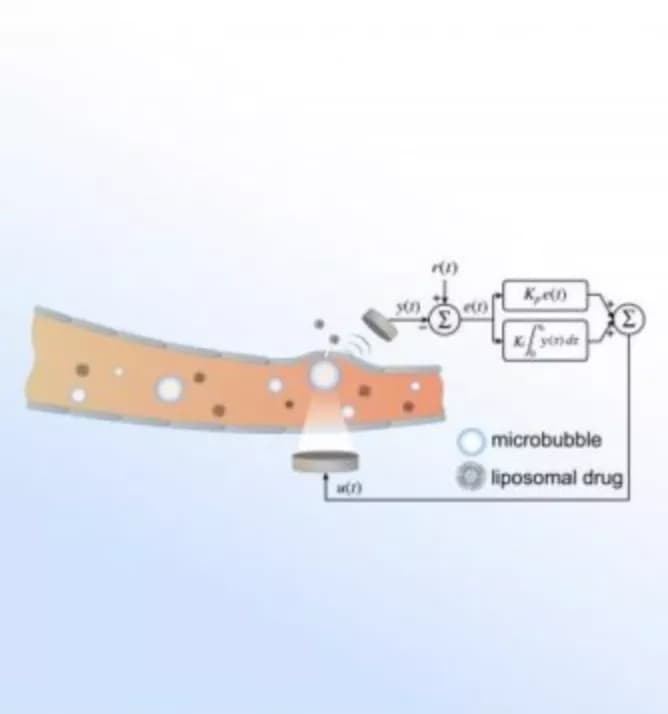
A Delicate Crossing: Controller Developed To Open The Blood-brain Barrier With Precision
The blood-brain barrier -- the semi-permeable membrane that surrounds the brain -- offers important protection for a delicate organ, but in some cases, clinicians need to get past the barrier to deliver vital drugs to treat the brain. Researchers at Brigham and Women's Hospital are investigating a way to temporarily loosen the blood-brain barrier to deliver drugs with the assistance of microbubbles. In a new advancement, they have developed a system in preclinical models that offers a finer degree of control -- and, therefore, safety -- in opening the barrier. Their findings are published this week in The Proceedings of the National Academy of Sciences.
"We want to be able to monitor our ability to open the blood-brain barrier in real-time by listening to echoes -- this could give us immediate information on the stability of the microbubbles oscillations and give us fast, real-time control and analysis," said lead author Tao Sun, a PhD candidate in the labs of co-authors Nathan McDannold, PhD, in the Focused Ultrasound Laboratory in the Department of Radiology at BWH, and Eric Miller, PhD, chair and professor in the Department of Electrical and Computer Engineering at Tufts."
McDannold and his colleagues have been working for years on using focused ultrasound and microbubbles to disrupt the blood-brain barrier and deliver drugs to the brain. However, a major challenge for translating research advancements in this area into clinical impact has been a lack of a reliable way to get instantaneous feedback on how well microbubbles are vibrating inside the brain. Microbubbles can help temporarily open the blood-brain barrier without incision or radiation, but if these bubbles destabilize and collapse, they can damage the critical vasculature in the brain.
In the lab, the research team used a rat model to develop a closed-loop controller -- a device that can give them a metaphorical window into the brain. By placing sensors on the outside of the brain that act like secondary microphones, the research team could listen to ultrasound echoes bouncing off the microbubbles to determine how stable the bubbles were. They could then tune and adjust their ultrasound input instantly to stabilize the bubbles, excite them to open the barrier, and deliver a drug of a predefined dose, while maintaining safe ultrasound exposure. The team tested the approach in healthy rats as well as an animal model of glioma brain cancer.
Further research will be needed to adapt the technique for humans, but the approach could offer improved safety and efficacy control for human clinical trials, which are now underway in Canada.
Materials provided by Brigham and Women's Hospital. Note: Content may be edited for style and length.
Disclaimer: DoveMed is not responsible for the accuracy of the adapted version of news releases posted to DoveMed by contributing universities and institutions.
References:
Tao Sun, Yongzhi Zhang, Chanikarn Power, Phillip M. Alexander, Jonathan T. Sutton, Muna Aryal, Natalia Vykhodtseva, Eric L. Miller, Nathan J. McDannold. (2017). Closed-loop control of targeted ultrasound drug delivery across the blood–brain/tumor barriers in a rat glioma model. Proceedings of the National Academy of Sciences. DOI: 10.1073/pnas.1713328114
Related Articles
Test Your Knowledge
Asked by users
Related Centers
Related Specialties
Related Physicians
Related Procedures
Related Resources
Join DoveHubs
and connect with fellow professionals

0 Comments
Please log in to post a comment.